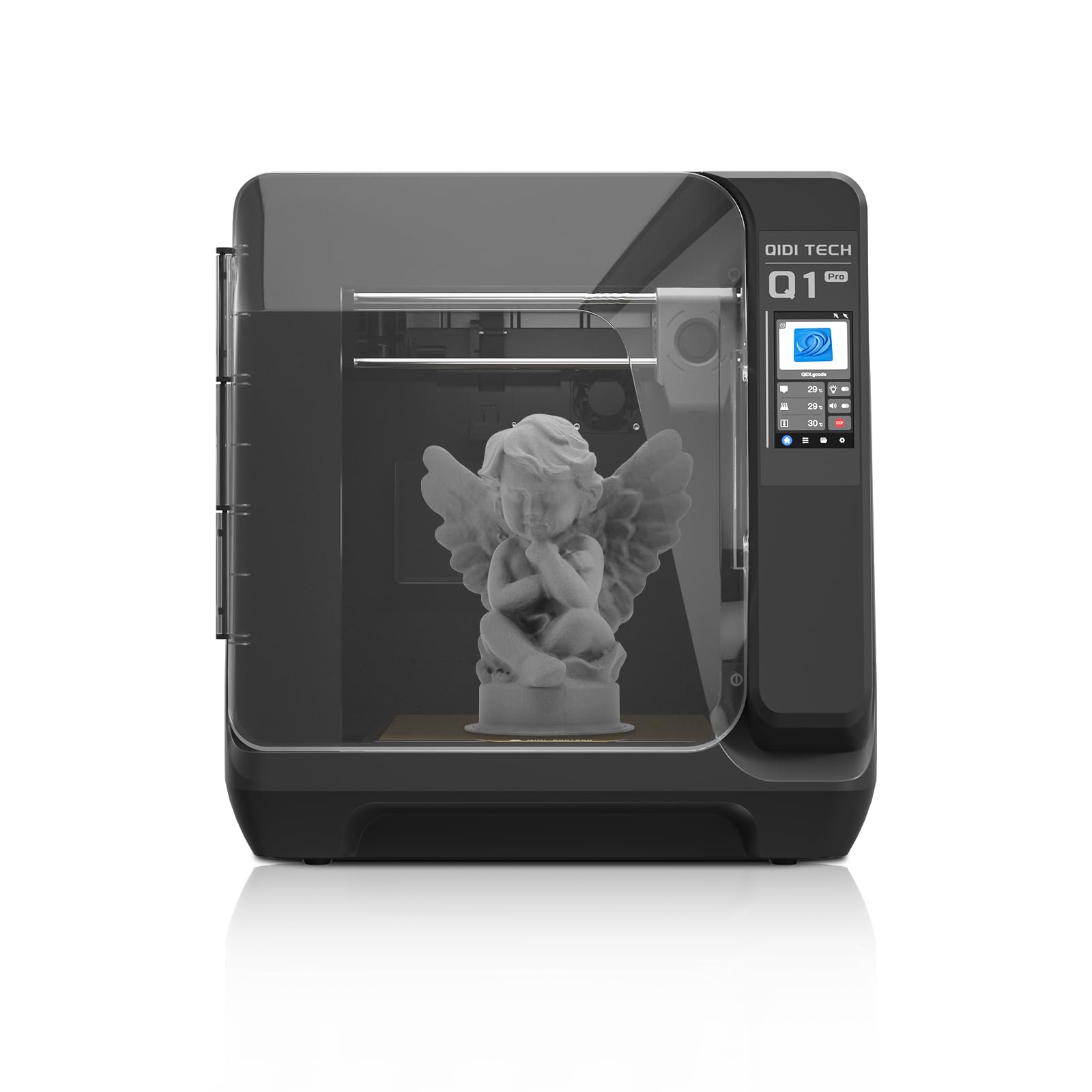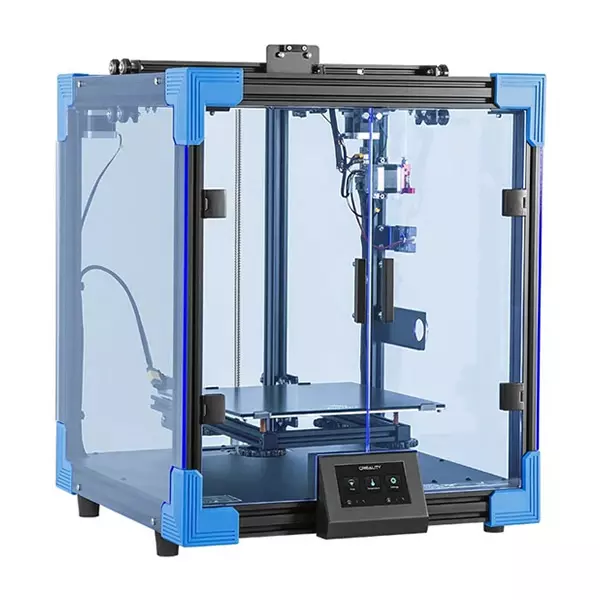Compare Q1 PRO vs Ender 6
Comparison between the best 3D printers
Choose the best 3D printer at the best price. The cheapest 3D printers are here.
Buy a 3D printer here with 3D Fila.
 |
 |
|
| Model | Q1 PRO[BUY Q1 PRO] |
Ender 6[BUY Ender 6] |
| Printing Material | Filament | Filament |
| Buy Filament for QIDI Q1 PRO | Buy Filament forCreality 3D Ender 6 | |
| Estimated price | $449,00 | $499,00 |
| Manufacturer | QIDI | Creality 3D |
| Release Year | 2024 | 2020 |
| Print Volume [mm] | 245x245x245 | 250x250x400 |
| Printer Size [mm] | 467x477x489 | 495x495x650 |
| Weight [kg] | 20 | 22 |
| Power Loss Recovery | YES | YES |
| Enclosed printer | YES | YES |
| Bed Leveling | Automatic | Manual |
| Filament End Sensor | YES | YES |
| Bed type | Heated | Heated |
| Power supply system | Direct Drive | Bowden |
| Standard nozzle | 0,4 | 0,4 |
| Maximum Nozzle Temperature [°C] | 350 | 260 |
| Maximum Bed Temperature [°C] | 120 | 100 |
| Maximum printing speed [mm/s] | 600 | 150 |
| Filament holder | YES | YES |
| Camera for supervision | YES | YES |
| Recommended filaments | PLA、ABS、ASA、PETG、TPU、PC、PA、PA-CF、PET-CF、PAHT-CF etc. | PLA, TPU, ABS, PETG |
| Recommended slicers | QIDI Slicer/Cura/Simplify 3D/ORCA/PRUSA Slicer | Cura, Simplify, Slic3r |
| Maximum Resolution [mm] | 0,1 | 0,1 |
| Processor | Cortex-A53,64-bit Processor | 32 bits |
| Display | Touchscreen 4,3'' | Touchscreen TFT 4,3'' |
| Power Supply | 350 W | 24V / 504W |
| Connectivity | WiFi/USB Flash Drive/Ethernet Cable | SD / USB |
| Operating systems | Windows, Linux, Macbook | Windows, Mac, Linux |
| Date of registration in the system | 2024-07-09 | 2021-04-15 |
| Release date | 2024 | 2020 |
| Extra features | The QIDI Q1 Pro 3D printer stands out for its Core XY structure and heating chambers that reach up to 60ºC, ideal for advanced materials such as ABS and Nylon. It features Klipper firmware, an automatic leveling system, a high-flow extruder with a double metal nozzle and a hotend that reaches 350ºC. It offers connectivity via Wi-Fi, USB and Ethernet, as well as a 1080p camera for remote monitoring and an intuitive touchscreen for easy operation. | The Creality Ender 6 stands out in the world of 3D printers with its CoreXY system, offering fast and high-quality prints. With a robust design, it has acrylic panels to protect against air currents, optimizing the printing of materials that require higher temperatures. It features a generic Creality hotend, effective up to ~240°C. Its differentials include 10mm GATES belts, promoting stability at high speeds, and a 360W power supply for reliable performance. The machine also has an intuitive user interface through a 4.3-inch touchscreen. |
| Support for multiple colors and materials (AMS and CFS) | NO | NO |
Notes * |
||
| Cost-benefit | 8 / 10 | 7 / 10 |
| Hardware | 4.8 / 10 | 2.5 / 10 |
| Tela | . | . |
| Print volume | 3 / 10 | 4 / 10 |
| Performance | 5 / 10 | 1 / 10 |
| [BUY Q1 PRO] | [BUY Ender 6] |
Conclusion |
| In conclusion, both the QIDI Q1 Pro and the Creality Ender 6 offer solid options for different types of 3D printing needs, but they cater to different users based on features and performance. The QIDI Q1 Pro, released in 2024, presents a more advanced feature set with a higher maximum nozzle temperature and faster printing speed, making it suitable for users intending to work with a wider variety of materials, including advanced thermoplastics. Its automatic bed leveling and robust connectivity options provide a more user-friendly experience. The enclosed design also benefits from better thermal stability, allowing for high-quality prints with materials known to warp. On the other hand, the Creality Ender 6, although released in 2020, remains a strong contender with its CoreXY system that ensures good print speed and quality for most common filament types. However, it falls short in terms of maximum hotend temperature and has a manual leveling system, which may require more user intervention and experience. Its slightly larger print volume and robust build are positives, but the performance in terms of high-temperature applications does not match that of the Q1 Pro. Considering the cost-benefit analysis, the QIDI Q1 Pro scores higher, suggesting better overall value for those seeking performance, features, and modernity. Ultimately, the choice between the two will depend largely on the specific printing needs and material preferences of the user. If speed and flexibility with advanced materials are paramount, the QIDI Q1 Pro is the superior choice, while the Ender 6 remains a reliable workhorse for standard applications. |

